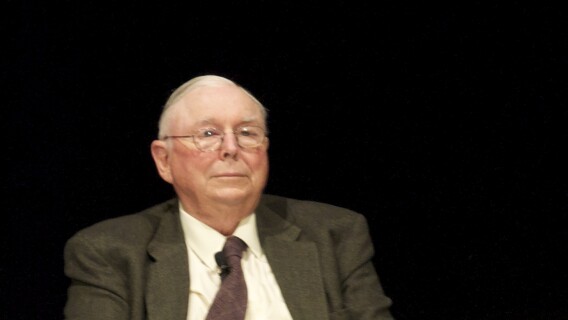Even non-investors know the name Warren Buffett, the “Oracle of Omaha,” a prolific investor who is regularly in contention for the richest man in the world. But far fewer know the name Charlie Munger, a man widely credited with leading to Buffett’s success by converting him from a “cigar butt” investor (buying the “butt” of a cigar to get one last puff) to one that prioritizes buying great companies at reasonable prices.
Mr. Munger passed away this week at 99. He was vice chairman of Berkshire Hathaway (BRK-A/B) and helped convert Berkshire into one of the most successful public companies in history and into a “forever” investor in quality firms, leading to a nearly unprecedented accumulation of wealth for the company and its shareholders.
Charlie Munger also chaired the Daily Journal Corporation (DJCO), a small company that provides California lawyers with valuable legal information. The company’s software business is a leader in the growing industry of automated court reporting. Like Berkshire Hathaway, the Daily Journal Corporation holds public stocks – in its case, $154 million worth, about a third of its $440 million market cap.
Over the years, Munger has flaunted conventional wisdom by investing in only a few companies. Until the end of last year, Daily Journal held five portfolio positions. Currently, that’s down to four.
[text_ad]
His life will be well-summarized in the days to come, and this obituary from the Daily Journal seems the most fitting to share. So rather than recount stories of personal hardship (of which he endured many), or fortunes made or lost, we wanted to share the lessons he left behind, and which he’d gladly share with any who asked.
The Lessons Charlie Munger Left Behind
On finding happiness …
Munger was asked in a 2019 episode of “Squawk Box” about the secret to a long and happy life. The answer, he said, is simple:
“You don’t have a lot of envy, you don’t have a lot of resentment, you don’t overspend your income, you stay cheerful in spite of your troubles. You deal with reliable people and you do what you’re supposed to do. And all these simple rules work so well to make your life better. And they’re so trite.”
On values …
In an interview for Michigan Ross Business School, Mr. Munger once said:
“I sometimes use the old saying, ‘They got the boy out of Omaha but they never got Omaha out of the boy.’ All those old-fashioned values — family comes first; be in a position so that you can help others when troubles come; prudent, sensible; moral duty to be reasonable [is] more important than anything else — more important than being rich, more important than being important — an absolute moral duty.”
On investing …
“All intelligent investing is value investing — acquiring more than you are paying for … You must value the business in order to value the stock.”
… and on value investing in particular
“The idea of getting more value than you pay for, that’s what investment is. If you want to be successful, you have to get more value than you pay for. So it’s never going to be obsolete.”
On his portfolio …
“You’re lucky if you got four good assets. If you’re trying to do better than average, you’re lucky if you have four things to buy. To ask for 20 is really asking for egg in your beer.”
And, owing to his credit or coincidence, his portfolio just happened to have four good assets when he passed.
Charlie Munger’s 4 “Good Assets”
Alibaba (BABA) – Munger was vocal about the value of building an economic partnership with China, and when asked about the investment in Alibaba, had this to say: “Well, we did it for a very, very simple reason. We got more strength per dollar invested in China. The companies we invest in are stronger relative to their competition and priced lower. That’s why we’re in China.”
Bank of America (BAC), U.S. Bancorp (USB) and Wells Fargo & Company (WFC) – Large U.S. banks were three-quarters of the names he held and made up nearly 84% of Daily Journal’s portfolio. When he was asked about them earlier this year, he was as pragmatic as you would expect, saying, “Those bank stocks I bought on the bottom tick in the foreclosure crisis. It literally was the bottom tick … And they’re practically all gain, so I immediately give the government 40-some percent of everything we sell out of those bank stocks. And of course the dividends are almost tax-free.”
We don’t typically advocate putting all your eggs in one basket (or in your beer for that matter), but a highly concentrated portfolio in U.S. bank stocks seems like a fitting portfolio for Mr. Munger: optimistic about the future of the country, pragmatic, and (perhaps) a little quaint.
[author_ad]

